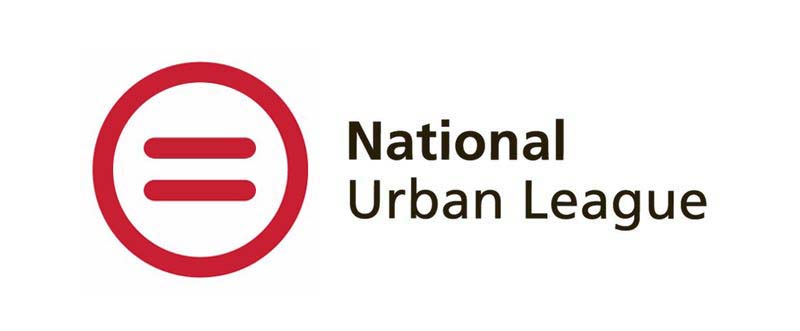A resume summarizes your professional work history and achievements and is the primary document you’ll use during your job search. As you’re writing your resume, you may wonder what the best skills to put on a resume are to help you land the job. Do you list all your skills or just a few of them? And if you only include some of your skills on your resume, which ones should you choose?
Fortunately, there is a solution. Figuring out which skills to put on your resume starts with identifying your skills and then determining which of those the employer wants in a candidate. Here’s everything you need to know about which skills to put on a resume.
What Skills to Put on a Resume
Before deciding which skills to include on a resume, you need to sort your skills into two categories: hard skills and soft skills.
Hard skills are technical skills. They’re often necessary and required for the role. While you don’t need every hard skill listed in the job posting, if you don’t have any, it’s unlikely you’ll get the job. Soft skills are the non-technical skills that help you accomplish your tasks and succeed at your job. These are sometimes known as people skills or personal skills.
While you may feel you have more skills in one category over the other, you should put hard and soft skills on your resume. Why both?
Success in any job requires a mix of abilities. For example, in a remote job, you need strong soft skills, like stellar interpersonal skills, to ensure you work well with your team and get things done even though you’re in different locations.
On the flip side, you’ll also need strong hard skills. You’ll likely use a messaging system (like Slack), so understanding how to schedule a message or attach a screenshot is critical, along with troubleshooting things on your own, like when your VLOOKUP isn’t working.
However, you don’t need to list all of your hard and soft skills on your resume. Only include skills that are specific to the job. Read through the job posting and identify which hard and soft skills are mentioned. These are the skills the hiring manager wants to see in applicants and the ones you should put on your resume.
>>Learn how and why you should use keywords on your resume.
If nothing else, keep in mind that listing all your skills takes up valuable space on your resume that you could use to describe your success and achievements at previous jobs.
Bonus Skills to Put On a Resume: Transferable Skills
If your skills aren’t a perfect match with what’s in the job description, that’s OK. Many of your skills are transferable. So, if your skills are close to what the hiring manager is looking for, include them on your resume.
For example, if the job posting mentions using Google Sheets, the company wants someone who can work with spreadsheets. If all you’ve ever worked with is Excel, include that information, then mention one or two specific things you can do in Excel that also work in Google Sheets.
How to Put Skills on Your Resume
There are two ways to include your skills on a resume.
The first is to include a skills section. The skills section of your resume starts with a header called “Skills” or “Relevant Skills,” and under it, you’d include a list of all skills you want to highlight to the hiring manager or recruiter. It might look like this:

The second way is to weave your skills into your resume bullet points using the STAR method. In this case, you’d create a bullet point about something you accomplished on the job while including a specific skill. Here’s an example:

Which Method Should I Use?
Depending on how long your resume is, you may want to use both methods to include skills on your resume. But make sure you put them in the right place!
>>LEARN: How long should your resume be?
For example, if you use a resume skills section, you can list hard skills, like which software programs or coding languages you know. The recruiter or hiring manager will likely understand that you can use these tools effectively. If you prefer to put them in the bullet section, that’s fine.
However, you may not want to include soft skills in this section. Saying you have “communication skills” doesn’t mean anything without some context. Do you have excellent written skills? Or are you a skilled orator? Placing soft skills in the bullet section with an example of how you leverage them on the job will help the recruiter or hiring manager understand what you’ll bring to the role using that particular skill.

Resume Writing Masterclass
Discover the tips and tricks to crafting a resume that shines in our free Resume Writing Masterclass. Learn how to turn your job duties into accomplishments and showcase your skills.
Avg. Time: 5-6 hours
Skills you’ll build: Resume writing, identifying keywords, transferable skills, professional summary, highlighting your impact
Top 20 Skills to Include on Your Resume (With Examples)
Here’s our list of the top 20 skills for your resume, along with examples of why and how to include them on your resume using the bullet point method.
1. Teamwork
Teamwork is the ability to work as part of a larger team. That includes anything from coordinating what you’re working on with coworkers to helping others when they need the support.
Why you should put teamwork skills on your resume: Teamwork is a critical skill in any job. Even if you’re a freelancer working for yourself, you’ll be part of a larger team, supporting in-house employees or partnering with your client.
Example:
- Developed and executed Instagram posting schedule to support marketing team’s overall strategy.
2. Leadership
Leadership is, of course, leading others. But if you think you lack leadership skills, know that “leadership” doesn’t have to mean being “the boss.”
Leadership skills come from many places and in many forms. For example, if you organized a volunteer event, you flexed your leadership skills throughout the planning and execution of the event.
Why you should put leadership skills on your resume: The ability to lead matters in the work environment. Again, you may not be a supervisor, but you may have overseen a project that required you to lead that effort.
Example:
- Oversaw annual 24-hour dance competition fundraiser to raise funds for selected charity.
3. Thinking Skills
Thinking skills is a broad category encompassing how you approach different situations. In this case, we’re talking about how you synthesize and analyze information to devise a solution or action plan. Top thinking skills to include on your resume are:
- Critical thinking is the ability to take a lot of information, analyze it, and come to a logical conclusion.
- Analytical skills help you make sense of information and come to conclusions.
- Logical thinking is when you analyze a situation and arrive at one or several courses of action.
- Decision-making skills help you make a choice that maximizes outcomes.
Why you should put thinking skills on your resume: How you think about things in the workplace can have a significant impact on how well you do your job. If you approach situations logically and take the time to analyze information, you’ll likely make decisions that are good for you and the company.
Example:
- Interviewed customers to identify pain points then created a product roadmap to address these concerns.

Professional Skills
Explore and identify your professional values in this free course from Discover Financial Services. Learn who you are as a professional and uncover ways to find a workplace that works for you.
Avg. Time: 2-3 hours
Skills you’ll build: Self-reflection, discovery, organization, planning
4. Creative Thinking
Though it’s also a thinking skill, creative thinking is different from the other thinking skills we’ve mentioned. Creative thinking is when you think outside of the box. In most cases, a tried and true solution will work, but not every time. That’s when you need to get creative, and think about other ways to approach a situation to accomplish your goals.
>>Learn what “thinking outside the box” means and more. Read Corporate Jargon Gen Z Should Know
Why you should put creative thinking skills on your resume: While there’s usually a set of procedures and standards to guide you, there will be times they just don’t work. Employers want to know you won’t give up when that happens and will try to find another way around the obstacle.
Example:
- Devised new tracking strategy to enhance supply chain efficiency and reduce costs by 17%.
5. Research
Research is when you examine what’s in front of you to answer “why?” For example, you may be tasked with figuring out why the books don’t balance. You may need to dig into the ledger to uncover a mistake, talk to coworkers about entries they’ve made, or track down missing invoices.
Why you should put research skills on your resume: While you may like relying on your instincts, saying, “because my gut said so,” usually isn’t a valid reason for doing X at work. You’ll need data or facts to support your choices, and to find those, you’ll need to do some research.
Example:
- Evaluated long-term impact of influencing partnerships on marketing outcomes.
6. Communication
Communication is the act of sharing information with someone else. However, when it comes to communication skills to include on your resume you’ve got options. There’s:
Why you should put communication skills on your resume: Depending on the specifics of the job and how long your resume is, you may not need to put all of these skills on your resume. However, demonstrating that you have them is crucial, because no matter the job, you’ll communicate in multiple formats.
Example:
- Created marketing collateral and decks for sales teams to use during cold outreach.
7. Active Listening
Active listening is when you take the time to thoughtfully listen to what someone else is saying before you answer. It’s not an easy skill to master, so possessing this skill can have a positive impact on your job search.
Why you should put active listening skills on your resume: Demonstrating you have active listening skills shows that you’re more than a good listener. It means you take the time to listen to everything the speaker is saying and consider it before you respond.
Example:
- Participated in weekly meetings with the volunteer committee to arrange scheduling to balance volunteer and agency needs.
8. Problem-Solving
Problem-solving is when you find a reasonable solution on your own. That doesn’t mean you can’t ask for help. Sometimes, asking for someone’s opinion or insights is part of this skill set. But problem-solving usually means looking for solutions on your own instead of always asking, “What should I do?”
Why you should put problem-solving skills on your resume: There’s an excellent chance you’ll solve problems every day you’re on the job. It might be as simple as figuring out why your table isn’t formatting properly, or something as complex as identifying inefficiencies in the company’s manufacturing process.
Example:
- Analyzed manufacturing processes to identify inefficiencies and reduce bottlenecks to increase product times by 40%.
9. Time Management
Time management is the art of balancing your schedule. You have to make enough room in your day, week, and month to complete everything by the due date.
Why you should put time management skills on your resume: Showing you have time management skills means you can multitask without sacrificing quality.
Example:
- Managed multiple social media calendars and campaigns while tracking metrics and engagement rates.
Resume and Interview Training
Level-up your resume writing and interview skills in this free course from lululemon. Learn how to tailor your resume to a job description, talk about your transferable skills, and so much more.
Avg. Time: 2-3 hours
Skills you’ll build: Resume building, STAR method, interview preparation
10. Collaboration
Collaboration is the art of working with another person or team to get the job done. It’s similar to teamwork but when you collaborate, it’s not uncommon to work with people who aren’t a part of your team. For example, a product manager may collaborate with the marketing team to figure out how to sell the product. Both teams have the same end goal but achieve it differently. Collaborating means everyone works together to support each other and the final outcome.
Why you should put collaboration skills on your resume: Most companies expect their staff to collaborate with each other and external partners. The ability to collaborate smoothly and with minimal conflict ensures everything goes according to plan.
Example:
- Organized regular meetings with the account manager and client to ensure client goals were being met.
11. Attention to Detail
Attention to detail means you pay attention to the small things. While we often think of this skill in relation to editing or proofreading, being detail-oriented comes in handy in many work situations. For example, double-checking a shipping address and ensuring it’s correct before mailing something saves costs.
Why you should put attention to detail skills on your resume: You may not sweat the small things but you know they matter. And an employer wants to hire someone who goes through everything with a fine tooth comb to lessen expensive mistakes.
Example:
- Organized vendor contact list and cross-referenced with booth assignments to ensure every exhibitor had the necessary booth equipment.
12. Adaptability
Adaptability is the ability to pivot when things change. That could be getting a new boss, taking over a sick colleague’s work load, or a change in business strategy for the upcoming year.
Why you should put adaptability skills on your resume: Change is inevitable and employers want staff who can roll with those changes. You can dislike the changes, but adjusting and adapting what you’re doing or how you’re doing it is vital.
Example:
- Devised new outreach strategy during merger to educate clients about upcoming changes to the product.
Strengthen Your Skills
Identifying which skills to put on a resume starts with a deep dive into the job description to pinpoint the skills the hiring manager is looking for and ends with you highlighting those on your resume. Even if you don’t have the exact skills an employer wants, you might have a similar skill that you can highlight. No matter which skills you include on your resume, describing how you’ve used them in previous roles can help the hiring manager understand how you’ll use them on the job.
And if you’re looking to grow or strengthen your skills, consider enrolling in a Forage virtual job simulation. You’ll see what it’s like to work in investment banking, software engineering, or life sciences by completing a project using real-world tools, data, and situations. When you finish, we’ll give you a resume snippet to help describe what you did and which skills you’ve developed. It’s free, so try one today!
Frequently Asked Questions
The skills you put on a resume should include a mix of hard and soft skills. Make sure to include the skills that are relevant to the role. You can find these by reviewing the job description.
There are two ways to fill skills on a resume. The first is by creating a “skills” section on your resume. The second is by weaving your skills throughout your bullet points in your work history.
Professional skills are the skills you use on the job. They can overlap with personal skills but are primarily used at work.
Personal skills are the skills you use with other people. Soft skills and interpersonal skills are personal skills.
Write your personal skills as skills, but relate them to work. For example, empathy is a personal skill but you’ll often use it on the job. You could say, “Listened to customer concerns and actively identified pain points to discover a solution that worked for them.”
Image credit: Canva
Erica Burns contributed to this article


